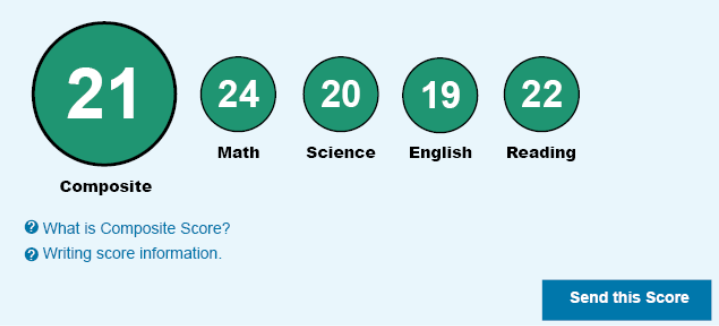The ACT is a standardized test used for college applications. It measures a student’s ability to perform in four areas: English, Reading, Math, and Science. There is also an optional writing section that some colleges require upon submission, although it is rare.
However, this is not the case anymore; a new policy was put in place starting with the September ACT. Now, the science section is optional, meaning that students can choose to take the ACT with or without science.
According to my.act.org, “ACT Math, Science, English, and Reading test scores and the Composite score [all] range from 1 to 36. For each test, we converted the student’s number of correct answers into a score within that range. The student’s Composite score reflects performance on completed tests such as the English, Math, and Reading, and under certain conditions science.”
This means the ACT science score will not be included in the main Composite score, but colleges can still see all sections of the ACT when scores are submitted. If students opt to take the science section, the score is reported separately, and colleges may choose to consider it for admissions or scholarships, especially in STEM-related fields.
A Leesville senior, who wishes to remain anonymous, said, “My science score is always my highest. I recently took the September ACT, intending to improve my reading, english, and math to help me when superscoring. I was able to increase reading by three, english by two, and math by one, but because of the new science rule, I kept the same score as the first time I took it.”
Additionally the science rule makes superscoring difficult. An ACT taken before September will count the science section in its composite score, but when superscoring with the September ACT the previous and new science score is left out all together.
So, why is the ACT making science optional?
The primary goal was to provide students with more of a choice over their testing experience. It allows students to decrease their overall test time and helps reduce stress with one less section to study for.
However, it can also be unfair for students who thrive in the science section which includes interpreting data, experiments, analyzing, and scientific reasoning, and the ACT provided them the opportunity to excel in them. Now, these students can still choose to take it, but their efforts won’t be included in their score, which can be a little discouraging.
Over the past few years, many colleges have adopted the test-optional approach, which allows students the freedom to choose whether they want to submit SAT and ACT scores or even both. Within these tests, students are posed with even more options to consider.

It makes my day better when I cook meals for family and friends.

Leave a Reply